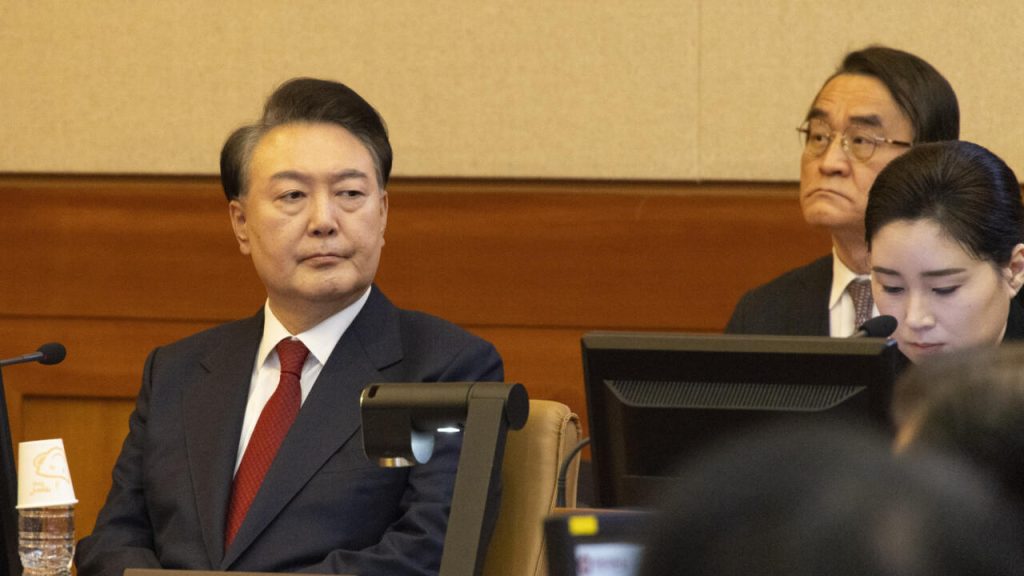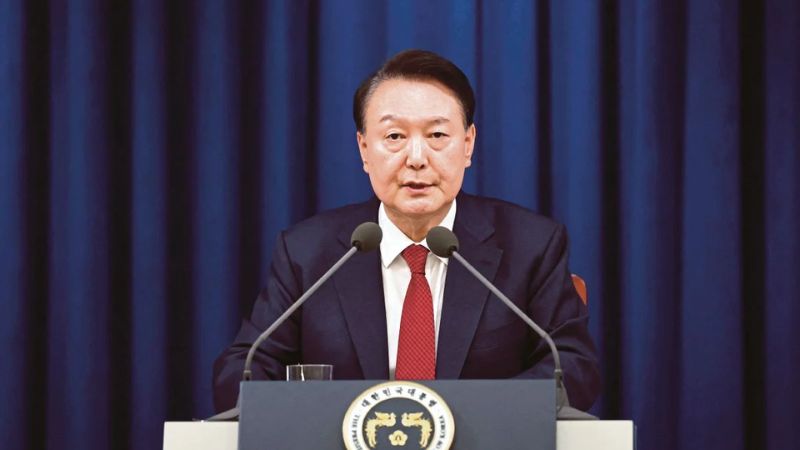South Korean President Yoon Suk Yeol is set to become the first sitting leader in the country’s history to stand trial in a criminal case. Hearings begin on Thursday over his attempt to impose martial law.
The 64-year-old former prosecutor, who was arrested last month, faces charges of insurrection, a crime that could result in a life sentence or even the death penalty. His trial will open at 10 a.m. local time (0100 GMT) at Seoul’s Central District Court.
Prosecutors have labelled Yoon the “ringleader of an insurrection.” At the same time, his lawyers argue that the case lacks legitimacy, asserting that it was within his authority as head of state to declare martial law.
Simultaneously, South Korea’s Constitutional Court is considering whether to permanently remove him from office following his impeachment by parliament in December. His tenth impeachment hearing is scheduled for Thursday at 3 p.m., just hours after his criminal trial begins.

Among those set to testify in the impeachment case are Han Duck-soo, who briefly served as acting president after Yoon’s impeachment, and former senior intelligence official Hong Jang-won. National Police Agency chief Cho Ji-ho, who is also on trial for insurrection charges, has been called as a witness.
The Constitutional Court’s decision on Yoon’s impeachment could take weeks. Past impeached presidents, Park Geun-hye and Roh Moo-hyun, waited 11 and 14 days, respectively, for verdicts. If Yoon is removed from office, South Korea will need to hold new presidential elections within 60 days.
The controversy stems from Yoon’s brief declaration of martial law, which lasted only six hours before the opposition-led parliament overturned it. The move has thrown the country into months of political unrest, sparking protests, legal battles, and a wave of disinformation online.
Yoon’s legal team maintains that his martial law decree was “an act of governance and cannot be subject to judicial review.” However, the trial and impeachment proceedings will determine whether his actions constituted a violation of South Korea’s constitution.


 Trending
Trending 
